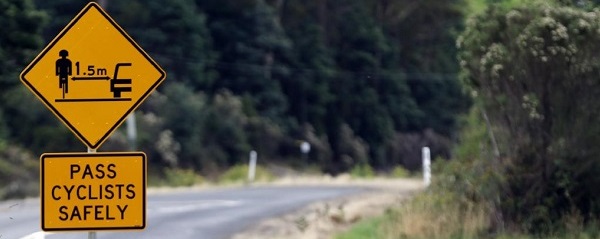Tasmania’s proposed minimum passing distance law was the subject of a valuable workshop held by the Royal Automobile Club of Tasmania (RACT) recently.
Bicycle Network adviser Garry Bailey outlined the history of the campaign to secure the law around Australia, what the law will mean for riders and drivers, and what problems might arise in enforcement.
The workshop was held as part of a two-day meeting of the RACT’s three regional advisory committees, which advise the motoring organisation on policy matters.
The RACT has yet to formulate a policy on the minimum passing distance law, which will require drivers to leave a one-metre distance when passing bike riders in 60 kmh zones and 1.5 metres in all zones above that speed.
Tasmania has already changed the law to allow drivers to cross an unbroken white lane, when it is safe to do so, when passing a bike rider.
There was general support for the law but concerns were raised about how the law might be interpreted on narrow streets.
Questions were also asked about the law that allowed bike riders to pass stationary vehicles to the left to reach the front of a queue at an intersection.
The RACT will examine these concerns when formulating its response to the new laws.
It may mean changes to the organisation’s policies on active transport and the protection of vulnerable road users.
There is likely to be further debate at the advisory committees when they meet again in October.
The new regulations are expected to be outlined later this month by Infrastructure Minister Rene Hidding.
The Government is also planning a new education campaign to inform all road users of the minimum passing distance law, while extensive signage has already been rolled out on state roads, backed by significant advertising. Tasmanian riders are reporting a change in driver behaviour as a result.
As Garry Bailey, who is also a member of the RACT’s southern advisory committee, pointed out during the workshops, sensible drivers have always given riders a wide berth and shown patience and consideration.


